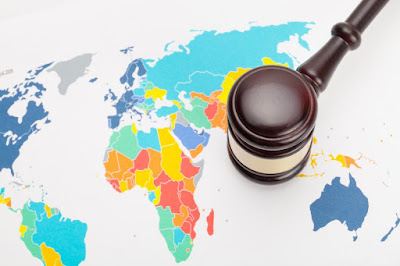What Is International Law? Understanding the Framework that Shapes Global Relations
International law serves as the legal framework that governs relations between nations, ensuring order, stability, and cooperation on a global scale. It encompasses a wide range of legal principles, treaties, customs, and conventions that shape the behavior and interactions of states. In this article, we will explore the fundamental aspects of international law, its sources, and its significance in maintaining peace and resolving disputes among nations.
The Definition and Scope of International Law: International law can be defined as the body of rules and norms that regulate the conduct of states and other international actors in their interactions with each other. It governs diverse areas such as diplomacy, human rights, armed conflicts, trade, and the environment. Its purpose is to establish standards and guidelines that promote harmonious relations, protect the rights of individuals and states, and facilitate cooperation in addressing global challenges.
Sources of International Law: a. Treaties and Agreements: Treaties, also known as international conventions, are formal agreements between states. They establish binding obligations and rights for the parties involved. Examples include the United Nations Charter, the Geneva Conventions, and the Paris Agreement on climate change.
b. Customary International Law: Customary law arises from long-standing practices and behaviors accepted as legally binding by states. Customary law is based on consistent state practice, coupled with the belief that such practice is required as a matter of law (opinio juris). An example is the customary prohibition of torture.
c. General Principles of Law: General principles of law are fundamental legal principles recognized by most legal systems around the world. These principles, such as fairness and non-discrimination, help to fill gaps in international law and guide its interpretation.
- Key Institutions: a. International Court of Justice (ICJ): The ICJ, commonly known as the World Court, is the principal judicial organ of the United Nations. It settles legal disputes between states and provides advisory opinions on legal questions referred to it by UN organs. Its decisions contribute to the development of international law.
b. International Criminal Court (ICC): The ICC is a permanent tribunal that prosecutes individuals responsible for the most serious international crimes, including genocide, war crimes, and crimes against humanity. It plays a vital role in ensuring accountability and upholding human rights.
The Role of International Law in Global Relations: International law serves as the foundation for cooperation among nations. It establishes rules for peaceful settlement of disputes, encourages respect for human rights, safeguards the environment, regulates trade and investment, and promotes stability and security. By providing a common legal framework, international law fosters predictability and trust among states, facilitating diplomacy and the resolution of conflicts.
Criticisms and Challenges: While international law plays a crucial role in maintaining global order, it faces certain criticisms and challenges. Some argue that its enforcement mechanisms are limited, as states retain sovereignty and may choose to disregard their obligations. Additionally, the interpretation and application of international law can sometimes be subject to political considerations, leading to inconsistencies and disputes.
Conclusion: International law is a vital tool for promoting peaceful coexistence, cooperation, and justice in the global community. It establishes rules and norms that govern the behavior of states, protect human rights, and address global challenges. While its implementation and enforcement may face challenges, the continued development and adherence to international law remain crucial for a more just and harmonious world.




Post a Comment
0 Comments